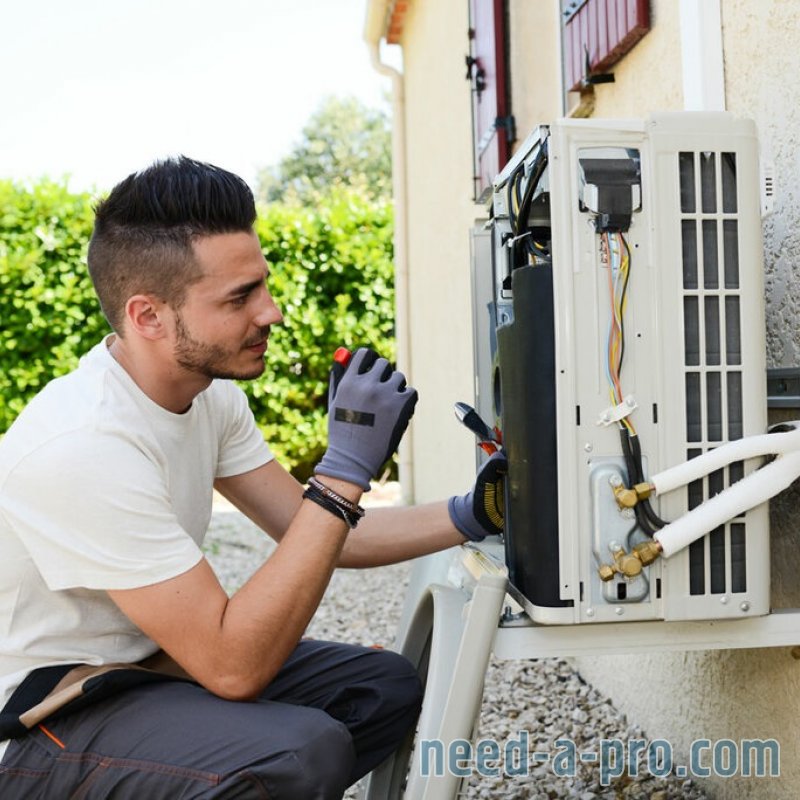The quality of indoor air is a critical yet often ignored aspect of our daily lives. Many people are ignorant that the air within our homes and workplaces can be worse than the air outside. This is where heat, airflow, and air conditioning systems, commonly referred to as HVAC, come into play. These systems not only control temperature but also play a significant role in maintaining the air we inhale. Understanding how HVAC works can help you create a better living environment for you and your family.
As we spend a substantial portion of our time indoors, the quality of indoor air has a direct impact on our health, comfort, and overall well-being. From reducing irritants and pollutants to maintaining proper humidity levels, a efficient HVAC system is crucial. This article will guide you through the various parts of HVAC, explore typical problems you might encounter, and provide professional advice on maximizing your system's efficiency and enhancing indoor air quality. Whether you are a property owner looking to enhance your system or a business owner seeking to enhance workplace conditions, understanding HVAC is fundamental to creating a cozy and wholesome environment.
Understanding Heating, Ventilation, and Air Conditioning Mechanisms
Heating, Ventilation, and Air Conditioning is warming, airflow, plus air conditioning, which are crucial components for maintaining a comfortable interior setting. HVAC systems serve to manage temperature, humidity, plus air conditions inside residential plus business spaces. By means of integrating the 3 roles, they serve a key role in ensuring the house or workplace remains comfortable throughout regardless of the climate.
The heating systems commonly utilize furnaces and other heating devices for warm up spaces during colder seasons. In contrast, air conditioning systems help cool the air in the warm months, delivering comfort from the heat and humidity. Ventilation is equally crucial as it brings in new outdoor air and expels unhealthy indoor air, cutting down on contaminants and improving overall air conditions. A properly working heating and cooling system means enjoying maximum satisfaction and better indoor atmosphere.
To completely understand the way HVAC systems operate, you should familiarize yourself to the components, including temperature controls, air ducts, air filters, and others. Ongoing maintenance and knowledge of common problems can help ensure your HVAC system operates efficiently plus reliably. Becoming familiar with the specific features of your heating and cooling system may also help in taking informed choices about improvements and maintenance, ultimately enhancing the quality of your living space.
The Effect of HVAC on Indoor Air Quality
Indoor atmosphere quality is essential for maintaining a healthy and comfortable living space, and HVAC systems play a major role in this aspect. Well-maintained and appropriately designed HVAC systems clean and move the air, filtering out pollutants, allergens, and contaminants that can harm health. This is especially important in homes and commercial buildings where people spend significant amounts of time. Effective ventilation, a key component of HVAC systems, ensures that fresh air is brought in while old air is expelled, promoting a cleaner indoor environment.

Humidity control is another crucial function of HVAC systems that directly impacts indoor air quality. Elevated humidity levels can cause the growth of fungus, bacteria, and dust mites, which can provoke allergies and respiratory issues. Conversely, low humidity can cause discomfort and result in dry skin and respiratory problems. An efficient HVAC system helps control humidity levels, providing a stable atmosphere that enhances comfort and reduces health risks.
Finally, the varieties of air filters used in HVAC systems considerably influence indoor air quality. High-efficiency particulate air (HEPA) filters, for example, are specifically made to retain minute particles and allergens, providing purer air. Routine maintenance and prompt replacement of air filters are critical to guarantee that these systems operate efficiently. By choosing my website and maintaining the system in top shape, homeowners and businesses can efficiently improve indoor air quality, enhancing overall well-being and productivity.
Heating, Ventilation, and Air Conditioning Care and Performance Recommendations
Regular maintenance is vital for keeping your HVAC system functioning effectively and prolonging its lifespan. Start by replacing the air filters each 1 to 3 month, depending on usage and the kind of filter. Dirty filters restrict airflow, making your system function more and leading to increased energy usage and stress on the system. Additionally, make sure that the outside unit is clear from debris, leaves, or any obstructions, as these can impede its performance.
Performing seasonal tune-ups is a further effective strategy to enhance HVAC efficiency. Plan professional check-ups at least twice a year—once before summer and one time before winter. During these inspections, a technician can identify potential issues, clean essential components, and optimize the system's performance. This preventive approach does not only guarantee a pleasant environment but also helps in avoiding costly fixes down the line.
Lastly, consider upgrading to smart thermostats and high-efficiency HVAC systems. Smart thermostats allow you to set temperatures based on your schedule, reducing energy waste when you're not home. Investing in Energy Star-rated equipment can result in substantial long-term savings on energy bills while also contributing to a reduction in your environmental impact. By implementing these maintenance and efficiency tips, you'll establish a more pleasant and cost-effective indoor environment.
